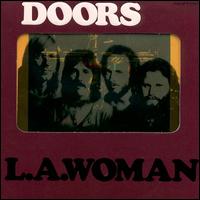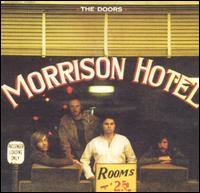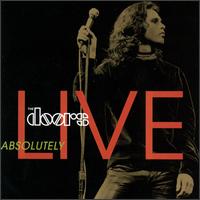L.A.W. 

The final album with Jim Morrison in the lineup is by far their most blues-oriented, and the singer's poetic ardor is undiminished, though his voice sounds increasingly worn and craggy on some numbers. Actually, some of the straight blues items sound kind of turgid, but that's more than made up for by several cuts that rate among their finest and most disturbing work. The seven-minute title track was a car-cruising classic that celebrated both the glamour and seediness of Los Angeles; the other long cut, the brooding, jazzy "Riders on the Storm," was the group at its most melodic and ominous. It and the far bouncier "Love Her Madly" were hit singles, and "The Changeling" and "L'America" count as some of their better little-heeded album tracks. An uneven but worthy finale from the original quartet.


The final album with Jim Morrison in the lineup is by far their most blues-oriented, and the singer's poetic ardor is undiminished, though his voice sounds increasingly worn and craggy on some numbers. Actually, some of the straight blues items sound kind of turgid, but that's more than made up for by several cuts that rate among their finest and most disturbing work. The seven-minute title track was a car-cruising classic that celebrated both the glamour and seediness of Los Angeles; the other long cut, the brooding, jazzy "Riders on the Storm," was the group at its most melodic and ominous. It and the far bouncier "Love Her Madly" were hit singles, and "The Changeling" and "L'America" count as some of their better little-heeded album tracks. An uneven but worthy finale from the original quartet.

